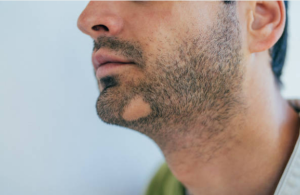How Much Beard Hair Loss Is Normal?
To maintain a healthy, well-groomed beard, it’s necessary to keep your hair free of tangles and to massage your follicles. However, you might have noticed that some hairs occasionally end up in your brush or comb, or in the sink after you have washed it.
This is a concern to many men. In this article, we are going to discuss how much is normal when you should be concerned and a few tips to improve your beard growth,
Normal Beard Loss
There are more or less 10,000 – 20,000 hair follicles on the average male face that will grow a beard. Assuming you have a full beard, you can expect 20 – 30 of them to fall out every day. It doesn’t seem that much when you bear in mind that this is less than 0.5% of your beard and that new hair will take its place in no time.
Beard Growth Cycle
Your hair passes through three cycles of life, just like every other hair on your body, which results in growth, dormancy, and eventual shedding.
Although the length of the cycles might differ from person to person, generally speaking, they continue as long as;
- Anagen Stage: 2 – 6 years
- Catagen Stage: 2 – 3 weeks
- Telogen Stage: 3 – 6 months
Anagen Stage
This is the visible growth stage of your beard. It will depend on your genetics for how long this stage lasts. Regular beard maintenance plays a big part in this phase, as well as patience. The typical monthly growth of hair is 1 cm.
Catagen Stage
At this point, the hair has stopped growing but is still anchored in the follicle. Although you cannot see it, it is there. During this process, new hair growth cells and blood supply to the hair are cut off. This process takes a few weeks.
Telogen Stage
In this stage, the new hair is starting to grow and pushes the old hair out as a result. This is the natural hair loss that you experience. The new hair will appear anywhere from 3 to 6 months.
Your Dietary Habits Need To Be Changed
Your body needs keratin, biotin, and calcium for the formation of hair. You should start consuming more protein if you are losing the hair on your beard since it may be an indication that you are lacking in certain micronutrients.
Loss of facial hair might also result from implementing a restrictive diet. For instance, losing hair, including beard hair, is one of the negative impacts of a keto diet. Natural processes such as hair growth can be slowed down by a sudden decrease in carbohydrate intake.
Stress Can Impact Beard Growth
When you are under intense and sustained stress, nothing positive happens. Regardless of the source of your stress, being under a lot of strain can have a detrimental effect on your physical and emotional health, which may result in beard hair loss.
Fortunately, most cases of hair loss brought on by stress may be rectified. Your beard will probably come back in all its splendour once you manage your stress again.
Alopecia Barbae
You can have alopecia barbae if you believe the hair loss in your beard is unnatural. Hair loss is a symptom of the medical illness alopecia areata. It is an autoimmune illness, which means that healthy cells are wrongly attacked by your body’s immune system. In this instance, it targets the hair follicles.
The beard is specifically affected by alopecia barbae, a kind of alopecia areata. You typically experience a quick onset and little circular regions of beard hair loss. There are medical innovations that can be explored for this condition, or more permanent solutions such as beard transplants.
Beard Health and Maintenance
Your testosterone levels will have a lot to do with how fast your beard grows. However, it is important to keep yourself and your beard healthy and maintain it.
A person’s beard will grow as thick and full as it is naturally capable of growing by making sure to maintain testosterone levels within a stable, healthy range by routinely exercising, eating healthily, and getting enough restful sleep. Healthy skin goes a long way to growing a beard.
Healthy skin plays a part in beard growth. Keep your skin clean and exfoliate regularly to remove dead skin. Make sure that it is a realistic skin care routine as going overboard is not going to do you any favours.
When to be concerned
It may be wise to seek a medical opinion if your beard is losing a lot more hair than you would like, coming out in patches, or becoming thinner and wispier than it was before. Your doctor can do tests which along with your medical history, can reveal the cause of your beard loss.
But most likely, you’re merely losing beard hair as is normal, or at worse a treatable explanation. Do all you can to maintain your health and the health of your beard, then leave the rest to nature.
FAQs
Q: When should I seek a medical opinion?
A: If you are sure that there is nothing else that could be causing your beard loss, you can visit your doctor to have tests done to correctly navigate the cause.
Q: What are the factors that can cause abnormal beard loss?
A: The factors of beard loss include genetics, testosterone levels, stress, diet, medications and maintenance routine. Many of these factors can lead to less hair loss
Q: How many beard hairs fall out a day?
A: It is normal for 20 – 30 beard hairs to fall out a day. They fall out when the beard growth is in Telogen phase, as a newly formed hair pushes it out to make space for the new hair to emerge.


